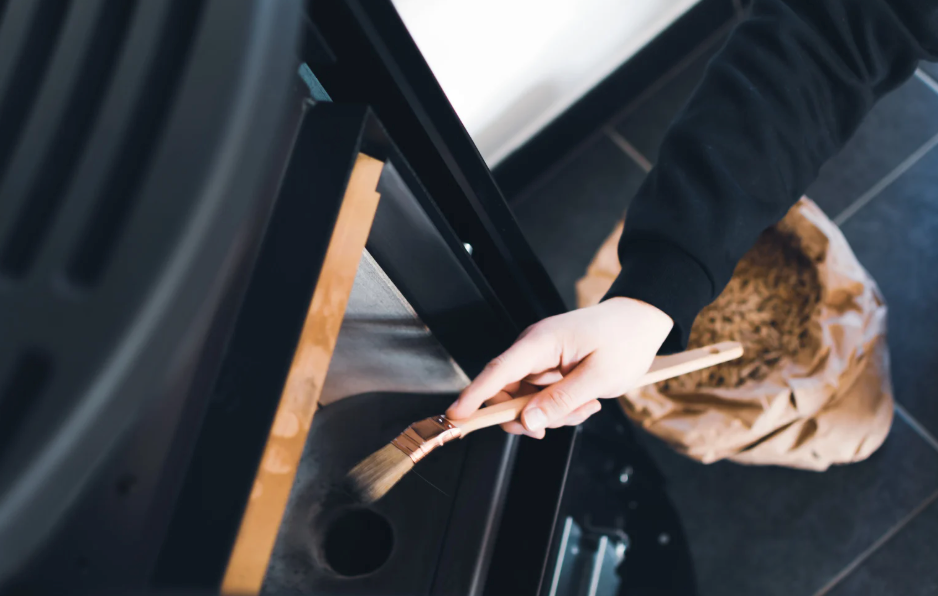
With the temperatures dropping and the nights getting longer, fall is the ideal time to give your pellet stove a little extra attention. Proper pellet stove maintenance ensures your system runs efficiently, safely and cleanly all winter long.
Whether you’re a new pellet stove owner or a seasoned pro, this winter prep checklist will help you get ahead of the cold and keep your home warm and cozy all season. However, if any of these steps feel too daunting or out of your comfort zone, don’t worry—calling a certified pellet stove professional is always a great way to make sure your system is cleaned, inspected and ready for winter
1. Give Your Stove a Deep Clean
After a few months of downtime, your stove deserves a reset. Begin by emptying out any leftover pellets, vacuuming the burn pot, and clearing ash from the heat exchanger and interior surfaces. Then move to the hopper and feed system—vacuum out dust and fines, clear the auger and check that the hopper lid seals tightly to keep moisture out. Finally, give the venting system some attention: remove the vent cap, brush out the pipe, and inspect for corrosion or leaks.
These three cleaning areas—the stove interior, the feed system, and the venting—work together to ensure steady airflow and consistent heat. A little time here prevents smoky starts, uneven burns and major headaches later.
2. Tighten and Test the Moving Parts
Pellet stoves have a few mechanical components that can loosen over time—things like augers, fans, hinges, and latches. Check that everything feels secure and moves freely. Make sure the door gasket forms a solid seal when closed. A leaky door can cause poor combustion and wasted pellets. This is also a great time to listen for any squeaks, rattles or vibrations so you can fix them before the stove is running full-time.
3. Do a Quick Systems Check
Before the cold really sets in, make sure your stove’s startup cycle and fans are working as they should. Turn it on for a short test burn—about 20 to 30 minutes—to confirm it’s heating evenly and running quietly. If you notice strange noises, error lights, or weak airflow, it’s a good idea to schedule a service check before winter.
4. Restock and Store Pellets the Right Way
Don’t wait until the first frost to order your pellets for winter. Fall is the ideal time to restock. Once you have your pellets, make sure to store them in a dry, covered space off the ground, away from moisture. Rotating your supply (oldest bags first) helps prevent clumping and dust buildup. If you’ve ever had pellets get damp, you already know it’s not worth the risk.
5. Gather Your Tools and Supplies When winter hits, the last thing you want is to hunt for an ash vacuum or scraper in the cold. Keep your cleaning tools, extra gaskets, and gloves nearby. If your stove uses any replaceable parts like filters or ignition rods, it’s smart to keep a spare set handy—that way, a simple part failure won’t leave you in the cold.
6. Keep Up with Light Cleanings
A deep clean now sets you up for success, but your stove will perform best if you give it regular attention through the season. Give it a quick clean once a week or so during heavy use—empty ash, wipe down the glass and check the burn pot. This will help your stove run hotter and cleaner and last longer. Plus, you’ll enjoy that steady, glowing fire without interruption.
A little time spent in October or early November can make your entire winter easier. Clean now, stock up early and test your stove while the weather’s still mild—so when the first snowflakes fall, all you have to do is sit back, sip something warm, and enjoy the fire. And if you’d rather leave the maintenance to an expert, scheduling a professional cleaning or inspection is a simple way to ensure your stove runs safely and smoothly all season long.
